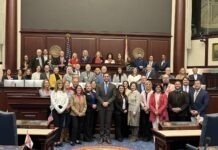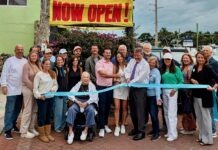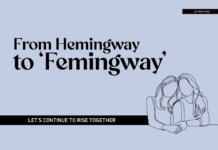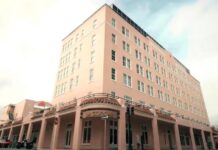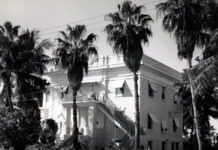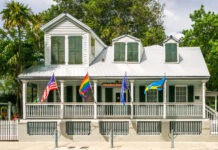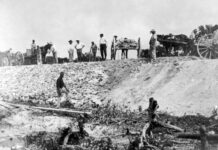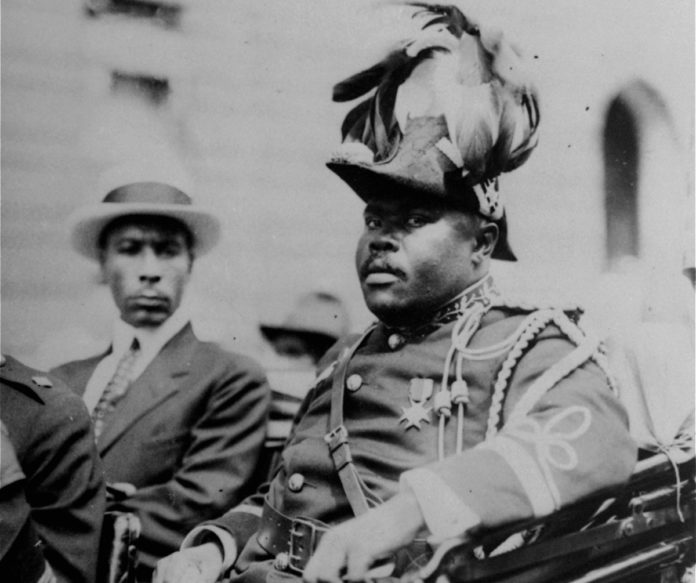
“We’re coming up on the 100-year anniversary of the founding of the (Ku Klux) Klan in Key West,” Arlo Haskell said. “It’s a … chapter in Key West history that I wanted to know more about.”
Haskell, a historian and author in the southernmost city, spent years researching the history of the Ku Klux Klan (KKK) in the Florida Keys — about who they were and how they operated. He presented his findings at the most recent Florida Keys History & Discovery Center virtual lecture.
While researching for “The Jews of Key West,” Haskell’s award-winning book, the writer came across the founding documents for the Klan of the Keys.
“It contained a lot of prominent Key West names, and I wanted to know more,” Haskell told the Keys Weekly. “You’d recognize the surnames, like Maloney, Porter — Porter still has a plaque on Caroline Street.”
The KKK was established in Key West in the 1920s as a direct response to political organizing within the Black community.
“White America wasn’t a fan of Marcus Garvey,” Haskell explained. “The Klan in Key West was founded during Garvey’s visit to show clear opposition to what he was doing.”
Garvey was an international figure who led a movement around the world preaching black equality, Haskell told the Keys Weekly. As a precursor to both Malcolm X and Dr. Martin Luther King, Jr., the charismatic Garvey founded the hugely popular Universal Negro Improvement Association and coined the phrase “Black is beautiful.” His visit to Key West in 1921 prompted city leaders to establish the Klan of the Keys, Haskell said.
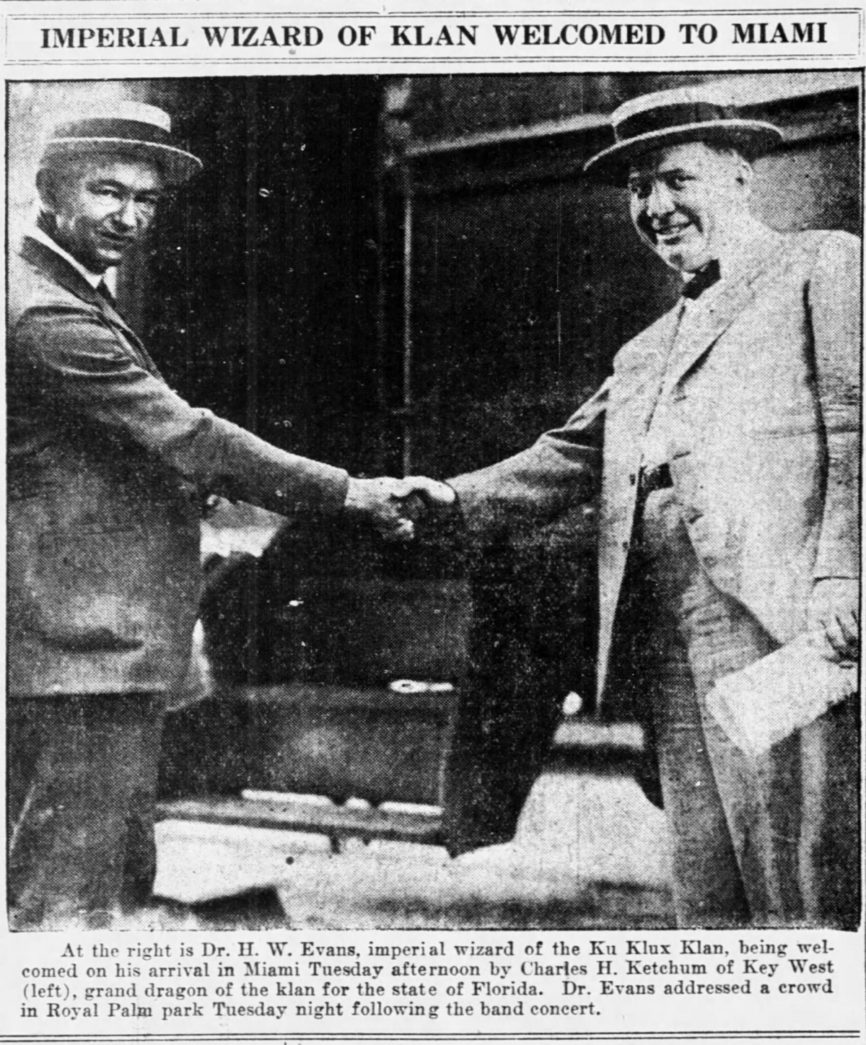
Under the Klan, violence and terror reigned in South Florida, with kidnappings, beatings and at least one murder, conducted “really with impunity,” Haskell said.
One man who headed up the Klan of the Keys, Charles Ketchum, also became the “grand dragon” for all of Florida. During his tenure, the state’s entire Klan organization was headquartered out of his Eaton Street office in Key West, Haskell said. Under Ketchum, the Klan in Florida became even more violent, including conducting more lynchings per capita than any other state. The Florida Klan also organized the notorious massacre Rosewood Massacre of 1923, in which an angry white mob burned a predominantly black town in rural Florida to the ground, with several casualties. The town was abandoned by survivors.
For the author, the most “shocking” discovery was who was in the Klan and how widely accepted it was.
“It wasn’t a fringe organization. It was the Monroe County sheriff, the police chief for the City of Key West, the tax collector, the fire department chief, the head of the criminal courts,” Haskell said. “All of the powers within the city of Key West were in the Klan. That haunted me, a little. It stuck with me.”
The Klan operated in broad daylight, sponsoring circuses and beauty contests. There were parades down the streets of Old Town Key West, and the newspapers advertised for them, Haskell said. This mainstream aspect of its operations struck the author as particularly relevant, given present-day race conflicts and clashes.
“We always learn something from history,” Haskell said. “Right now, we’re seeing white nationalist militant groups with support from the highest levels of government. I think there’s certainly a connection between what was happening then and what we see now. When you look at history, you can find precursors of what we’re living through today.”
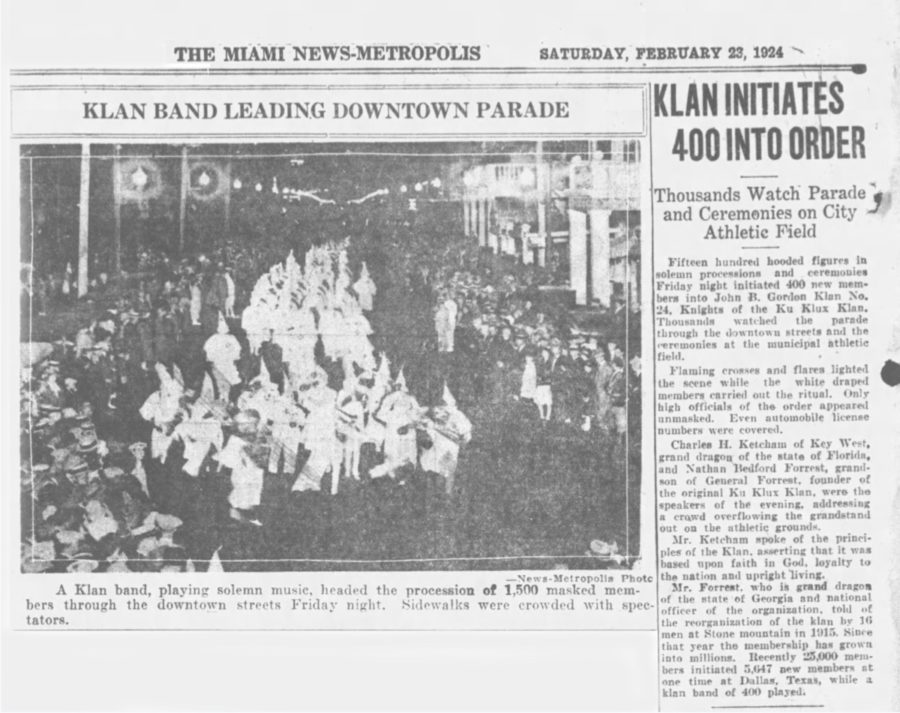
Haskell said there are consequences of this unequal past in today’s Key West. He often thinks of the entire generation of black Key West residents who would’ve been around the age of his grandparents, subject to racial terror and without any recourse to justice.
“The kind of economic disenfranchisement, the kind of devastation that the Klan did to Key West’s black community, is a kind of trauma that passes down through generations.” he said.
Just as quickly as it mobilized, the Klan of the Keys fell into disarray.
As a takeaway from the talk, Haskell hoped his listeners would always question the versions of history most often told and read. These stories tend to represent those with economic and political power, and there’s usually quite a bit left out, he said. It’s easier for historians to find out about men in the Klan conducting violence than about the black men they kidnapped and the black women they raped, Haskell said.
“Those stories aren’t told, relegated to a footnote,” he said. “The crimes of the powerful are covered up, and the tragedies of the poor are just as covered up. So, I hope people think twice about the stories they hear and remember there’s always another story that’s not being told.”
Haskell asked listeners to think about their own privileges. The generational implications of such a racist history have had great impact on what is available to people in the present day, he said.
“It is important to keep our eyes on the historic complication of people’s prospects and destinies,” he said. “It is all connected.”

